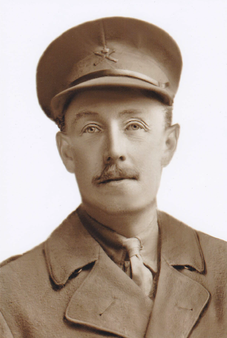|
There was a request in the last St Pius InPrint email for contributions related to the Great War. I am grateful to Frances Allen and Veronica Ker who both responded - in quite different ways... NF Frances wrote: David Allen’s father served in the First World War and I quote from David’s biography of his father…. “When the First World War started on 4th August 1914 Ernest Vivian (known as EV) was 38 years old and close to the upper age for enlisting. However he did enlist in September into the Artists Rifles a London territorial regiment which trained potential officers. He was commissioned into the Cheshire Regiment in December 1914, served with them on the Western Front for a short time in 1916, transferred into the newly formed Machine Gun Corps and was in action with them in 1917-1918, particularly in the first battle of Passchendaele and at Arras during the offensive of March 1918. He was promoted to Captain in 1915 and Major in 1918. He was lucky to survive the “War to end all Wars”. Frances commented: "There can’t be too many who can go back one generation to family members involved in WW1." Veronica suggested that we might include the poem "For the Fallen", written by Robert Laurence Binyon (1869-1943), and first published in The Times newspaper on 21st September 1914, because, as she remarked, it is now so well known by the use of verse 4 , "They shall not grow old ... ", which is read out at many Remembrance services. Veronica thought that it would be fitting to print the entire poem "to enlighten people as to the origin of those beautiful words". For the Fallen
By Robert Laurence Binyon With proud thanksgiving, a mother for her children, England mourns for her dead across the sea. Flesh of her flesh they were, spirit of her spirit, Fallen in the cause of the free. Solemn the drums thrill: Death august and royal Sings sorrow up into immortal spheres. There is music in the midst of desolation And a glory that shines upon our tears. They went with songs to the battle, they were young, Straight of limb, true of eye, steady and aglow. They were staunch to the end against odds uncounted, They fell with their faces to the foe. They shall grow not old, as we that are left grow old: Age shall not weary them, nor the years condemn. At the going down of the sun and in the morning We will remember them. They mingle not with their laughing comrades again; They sit no more at familiar tables of home; They have no lot in our labour of the day-time; They sleep beyond England's foam. But where our desires are and our hopes profound, Felt as a well-spring that is hidden from sight, To the innermost heart of their own land they are known As the stars are known to the Night; As the stars that shall be bright when we are dust, Moving in marches upon the heavenly plain, As the stars that are starry in the time of our darkness, To the end, to the end, they remain.
0 Comments
Leave a Reply. |
Archives
January 2024
Categories
All
|
©
2021 | Queries or Suggestions Contact the Webmaster, Terms of Use, ChurchSuite



 RSS Feed
RSS Feed